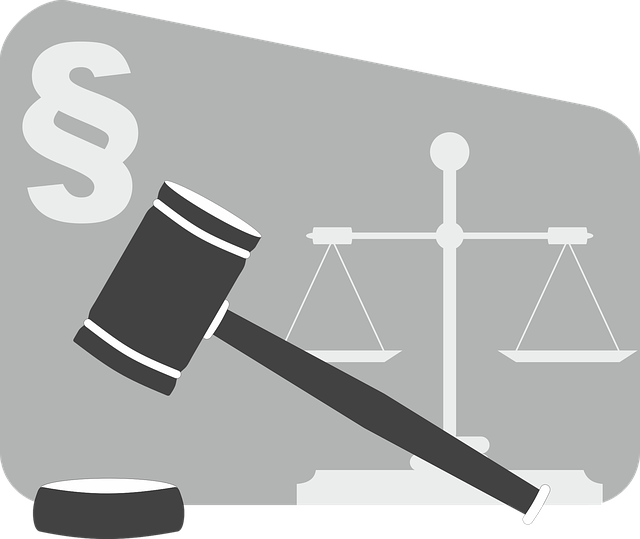The text explores the intricate Understanding Healthcare Regulatory Litigation Process, focusing on antitrust violation cases. Key players like the FTC, DOJ, and specialized law firms navigate complex matters involving price-fixing, market division, and abuse of dominance. The process involves thorough investigations, strategic legal arguments, and potential outcomes ranging from dismissal to substantial fines. Understanding this process is crucial for maintaining fair competition in healthcare, deterring unethical behavior, and ultimately benefiting consumers through robust market dynamics.
“Unraveling the intricacies of antitrust violation cases is crucial for navigating the complex landscape of healthcare regulatory litigation. This comprehensive guide aims to demystify a critical aspect of the medical industry’s legal framework. We explore what constitutes antitrust violations, who the key players are in these litigations, and how the legal process unfolds.
From investigating alleged misconduct to understanding potential outcomes, this article provides an insightful journey through the ‘Understanding Healthcare Regulatory Litigation Process’, offering valuable insights for all stakeholders.”
- What Are Antitrust Violation Cases?
- Key Players in Healthcare Regulatory Litigation
- The Legal Framework and Process
- Investigating Alleged Antitrust Violations
- Potential Outcomes and Implications for Healthcare Industry
What Are Antitrust Violation Cases?
Antitrust violation cases are legal battles centered around preventing and penalizing practices that restrict competition in various markets, especially in healthcare. These cases involve allegations where businesses or organizations engage in activities such as price-fixing, market division, or abuse of dominant market positions, which can significantly harm consumers and disrupt free markets. Understanding the healthcare regulatory litigation process is crucial here, as these legal proceedings often lead to substantial financial penalties, changes in corporate behavior, and achieving extraordinary results in terms of restoring fair competition.
The cases typically begin with investigations by antitrust authorities who examine business conduct through a lens of market impact. If violations are found, the accused entities may face a range of outcomes, including a complete dismissal of all charges or substantial fines and legal sanctions. The goal is to deter future misconduct, ensuring that businesses operate within ethical and competitive boundaries, thereby benefiting consumers and fostering a robust marketplace.
Key Players in Healthcare Regulatory Litigation
In healthcare regulatory litigation, several key players navigate the complex landscape of understanding healthcare regulatory litigation processes. At the forefront are government agencies like the Federal Trade Commission (FTC) and the Department of Justice (DOJ), which enforce antitrust laws and play a pivotal role in high-stakes cases that involve mergers, acquisitions, or anti-competitive practices within the industry. These agencies have the authority to investigate, bring lawsuits, and seek remedies for alleged violations.
Law firms specializing in healthcare regulatory litigation also take center stage, representing both plaintiffs and defendants in these intricate matters. Their expertise lies in navigating the nuances of antitrust law, as well as the specific regulations governing healthcare sectors. Through strategic legal arguments, negotiations, and sometimes jury trials, these firms help shape outcomes that can significantly impact the respective business models and operations of their clients.
The Legal Framework and Process
The legal framework governing antitrust violations is a complex web of federal and state laws designed to protect fair competition in the marketplace. At its core, the process involves a thorough understanding of Healthcare Regulatory Litigation, which includes an in-depth analysis of relevant statutes, case law, and regulatory guidelines. When allegations of antitrust misconduct surface, involved parties can expect a meticulous investigation by regulatory bodies or private plaintiffs, often leading to high-stakes cases with significant financial and reputational consequences.
The United States has established robust legal mechanisms to address antitrust violations, particularly in the healthcare sector, where mergers, acquisitions, and pricing strategies are scrutinized to ensure they do not restrict competition or harm consumers. This intricate process involves filing complaints, gathering evidence, conducting interviews, and ultimately presenting a case before courts or administrative bodies. An unprecedented track record of successful prosecution and defense in these high-stakes cases underscores the importance of meticulous legal strategy and robust white collar defense mechanisms for all involved entities.
Investigating Alleged Antitrust Violations
Investigating alleged antitrust violations is a complex and meticulous process that forms a crucial part of understanding healthcare regulatory litigation. It involves a multi-step approach where regulators, often represented by government agencies, carefully examine potential breaches of antitrust laws designed to promote fair competition in markets. This entails gathering extensive evidence, including financial records, market data, and industry practices, across all stages of the investigative and enforcement process.
Expert witnesses and legal teams play a significant role in this phase, helping to interpret complex data and navigate the nuances of antitrust legislation. The goal is to determine if businesses have engaged in anti-competitive behaviors such as price-fixing, market allocation, or abuse of dominant market position. Through meticulous analysis, regulators aim to build robust cases, ensuring that any violations are properly addressed. Winning challenging defense verdicts in such cases often hinges on a comprehensive understanding of general criminal defense strategies and the ability to present compelling arguments in court.
Potential Outcomes and Implications for Healthcare Industry
Antitrust violation cases in healthcare can lead to significant outcomes with far-reaching implications for the industry. When a company is found guilty of anti-competitive practices, such as price-fixing or market division, it faces substantial fines and legal penalties. These penalties not only impact the offending entity but can also have a ripple effect on the entire healthcare ecosystem. Understanding the healthcare regulatory litigation process involves recognizing that both corporate and individual clients are at risk, with potential outcomes ranging from monetary damages to structural changes in business operations.
The industry’s unique characteristics, such as complex regulations and high-stakes decisions, make these cases particularly challenging. A winning challenging defense verdict can be a game-changer for accused companies, allowing them to protect their market position and maintain consumer trust. Conversely, losing such cases could result in severe consequences, including the disruption of business models and even the potential breakup of large healthcare organizations. As such, effective white collar defense strategies are crucial, ensuring that corporate and individual clients alike can navigate these legal complexities with resilience and adaptability.
Understanding healthcare regulatory litigation, including antitrust violation cases, is crucial for navigating the complex landscape of the industry. By examining the legal framework, processes, and potential outcomes, stakeholders can ensure compliance and foster a fair market environment. This knowledge equips professionals with the tools to avoid violations, mitigate risks, and ultimately enhance competition and patient care within the healthcare sector.






